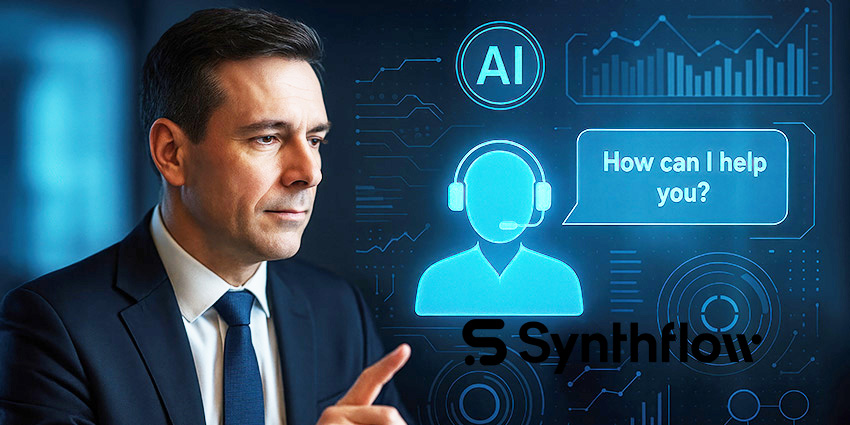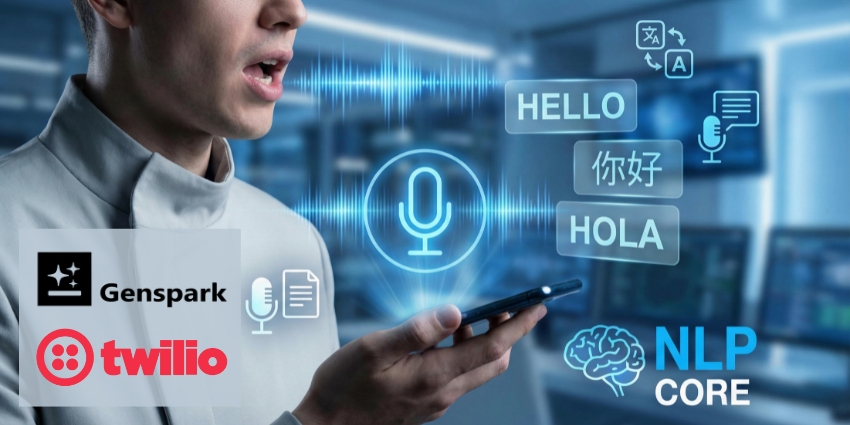AI agent assist software is emerging as a vital resource for today’s customer-focused teams. More than just an effective solution for automating common tasks, like performance monitoring and quality scoring, these tools augment and empower agents on a massive scale.
With the latest AI-powered tools, agents can instantly access the data and insights they need to streamline issue resolution, enhance sales conversations, and track crucial metrics. As AI advances, agent assist tools can generate personalized responses to customer queries in seconds, track sentiment scores, and streamline onboarding processes.
Today, we’re sharing some of the most significant trends influencing the evolution of agent-assist software in the contact center.
1. Generative AI Agent Assist Software
Generative AI is having a significant impact on how contact centers operate. Already, countless organizations are leveraging generative AI to improve customer service, creating more intuitive chatbots and virtual assistants. In the world of AI agent assist tools, generative AI can significantly improve the level of support each agent can access.
With generative AI solutions built into the contact center, agents can reduce the time they spend on post-call work, such as summarizing conversations or highlighting action items. Generative AI agent assist tools can even advise agents on when to follow up with a customer based on interaction context.
They can also automatically create highly personalized responses to customer queries, drawing on data from CRM and CDP technology, to ensure every customer gets a unique experience while reducing the time it takes to resolve issues.
2. Multimodal Support for Omnichannel CX
Advances in generative AI and conversational AI algorithms also pave the way for a more comprehensive level of agent support across multiple channels. Today’s agents need to be able to provide consistent, immersive experiences across chat, email, social media, voice, and video.
AI agent assist tools with multimodal capabilities can collect data from every type of interaction, ensuring that agents access the same context and insights as they move from one channel to the next. These tools can even pass critical data from previous conversations to new agents, ensuring customers don’t have to repeat themselves during calls.
Some solutions can even generate content in various formats, such as graphs or visuals that agents can share with customers during sales or support calls. This paves the way for a better level of omnichannel customer engagement.
3. Hyper-Personalization with AI Agent Assist Tools
One of the biggest benefits of leveraging AI agent assist tools in the contact center is that they empower staff members to deliver more personalized experiences to every customer. More than just simply surfacing a customer’s name or account information at the start of a discussion, the right tools can provide unique insights into a customer’s journey, previous purchases, and other data.
They can analyze sentiment during conversations and provide agents with insights on how to de-escalate issues or improve experiences based on results from previous interactions. Some tools can immediately detect when a customer should be transferred to another agent.
Agent assist tools with predictive analytics capabilities can also determine when an agent should follow up with a customer or proactively reach out with a new offer or deal to increase sales. Plus, their ability to collect data from every interaction means agent assist tools can give businesses valuable insights into new ways of personalizing and enhancing customer service.
4. Advanced Automation Capabilities
Many companies using AI agent assist tools today already use these solutions to automate various repetitive tasks for team members. Powerful AI solutions can immediately record and transcribe conversations and extract data from discussions, ensuring agents can focus more on delighting their customers.
However, some leaders in the contact center and customer service landscape are also building new workflow automation opportunities into their AI solutions. For instance, tools now exist that can automate conversation scoring and quality analysis and alert supervisors when issues arise.
Some solutions can automate the coaching and onboarding process, ensuring team leaders don’t have to spend as much time teaching team members new skills. There are even solutions that can automatically create sales scripts and follow up with customers on an agent’s behalf.
Plus, companies can leverage AI assistant tools to automate the creation of work schedules and enhance resource allocation based on historical data.
5. Increased Use of AI Agent Assist for Compliance
Maintaining compliance with industry standards in the contact center has always been complicated. As companies continue to gather more data from every interaction and hybrid work changes the contact center landscape, security and compliance risks are growing.
That’s why many vendors offering AI agent assist tools, like Five9, Nice, and Talkdesk, are building automated compliance and security solutions into their technologies. For instance, Talkdesk Guardian tracks the words spoken in a conversation, creates a baseline of secure user behaviors, and flags unexpected events for supervisors and managers.
Some solutions even help companies to automate certain compliance tasks, like redacting sensitive information from recordings or requesting permission to record a call. These features will likely become increasingly important as security risks in the contact center continue to evolve.
There may even be a rise in AI tools that can inform agents when they detect a “deepfake” voice created by generative AI, to help reduce fraud.
6. Integration with Emerging Tech
As mentioned above, AI agent-assist solutions are evolving to offer agents support across a range of channels. They’re also helping companies unlock new ways to serve and support customers through integrations with emerging tech.
For instance, agent assist solutions integrated with extended reality platforms (augmented, virtual, and mixed reality), can empower teams to deliver service in an immersive environment. Agents can step into an extended reality landscape to onboard customers, deliver demonstrations, and more, all while still having access to their AI support system.
AI agent-assist tools could even help companies deliver a more proactive level of service by leveraging IoT capabilities to monitor the performance of devices and other technologies in real-time. With IoT insights, agents can more efficiently troubleshoot complex problems remotely and even reach out to customers before issues escalate.
The Future of AI Agent Assist Solutions
Agent assist technologies enhanced by cutting-edge artificial intelligence can transform the contact center. These tools can make agents more efficient and productive, reduce operational costs, and unlock new opportunities for enhanced customer experiences.
As AI algorithms become more advanced and agent-assist tools continue to integrate with a wide range of emerging technologies, these solutions will become pivotal to the future of the contact center.







